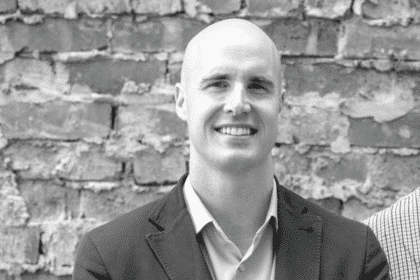Gen Z-ers are often given a bad rap for their indifference to news. Zara Seidler believes otherwise – it’s what lead her to start The Daily Aus (TDA) with her friend Sam Koslowski. The duo posted bite-sized, digestible news content on Instagram, which grew to become the Gen Z fave it is today. B&T sat down with Zara Seidler to chat about how young people are engaging with news in the Australian media landscape.
Zara Seidler felt something was stopping young people from engaging with the news and that many traditional news and media outlets can leave young people feeling excluded.
“Younger news readers are thought of as an afterthought. We wanted something fully catered for this generation. I knew that my friends cared about the world around them and wanted to read the news. Sam and my friends spend a lot of time on Instagram, so we started creating news content there. At the time, it was a fairly novel idea, no one was doing that,” Seidler said.
“The core of posting news on Instagram was that we weren’t trying to take Gen Z away from their natural habitat. Now more than ever, young people get their news on social media.”
TDA states that 85 per cent of its audience is under 35, with 70 per cent of its 365,000 readers citing it as their primary news source.
TDA’s Instagram posts feature digestible news breakdowns, focusing on bringing the necessary context without overwhelming audiences.
View this post on Instagram
After posting content on Instagram for nearly four years, COVID-19 hit and suddenly everyone was stuck at home, which catapulted TDA into the success that has continued today.
“I always say it’s a privilege not to care about the news. During COVID-19, it was impossible to look away. Politicians were telling you what you could do and who you could see. It was a ripe time for people to up their interest in reading the news, and that’s what we saw with The Daily Aus,” Seidler said.
TDA expanded from its Instagram page to include a website, daily newsletter and podcast. The company launched The Good Newsletter in August of this year in partnership with Intrepid Travel, focusing on good news from around the world.
“Having a healthy news diet is about having light and shade. It’s about having a grasp on the big stories that matter – politics, conflicts and the economy – while also allowing for an appreciation for all the good out there,” Seidler said.
“When we started The Daily Aus, we made a conscious decision to include one ‘good news’ story every single day. Years later, that remains one of TDA’s most defining features, and we’ve scaled that up with The Good Newsletter”.
Misinformation & The Future Of News
With Australia’s proposed social media ban receiving bipartisan support and Meta threatening to remove news from its platforms earlier this year, the media landscape certainly isn’t stable.
“We know there is a lot of misinformation on social platforms. That’s why reliable, fact-driven information is so important to us. We have a full-time fact-checker working at TDA. We don’t post our own thoughts on Instagram. We’re a legitimate news platform that’s by young people, for young people,” Seidler said.
While Seidler wasn’t in a position to comment on the proposed social media ban, she said: “The Daily Aus has always believed that there’s a lot of good that can be done on these platforms. In the vacuum of so much information, as long as there remains fact-based information, that’s so important. It’s about broadening the view of what people are viewing online”.
“The threat of Meta removing news off its platform was something we never predicted would happen”.
Seidler holds the belief that social media being the dominant platform for young people’s news consumption isn’t going to change anytime soon.
“We’re not going to wake up and see young people reading print newspapers,” she said. “However, as there is more fragmentation of the news media landscape, we’ll probably expect to see more individual creators followed by young people. There’s a lot to be said about that space and how it can be regulated”.
Accessibility & Transparency
TDA’s core values are accessibility and transparency.
Accessibility responds to how young people aren’t engaging with traditional news, such as terms and concepts they weren’t familiar with, leaving them feeling excluded.
“The news should be for everyone, not just for people who grew up with newspapers on their kitchen tables at home. We will always explain terms and concepts and walk people through a story so they feel like they’re part of that journey and not excluded,” Seidler said.
In terms of transparency, TDA endeavours to let people in on how the company works.
“In Australia, there is an issue with media concentration and we want to show that there can be new players who can flourish and sustain themselves. We have posted things like, ‘How does The Daily Aus make money?’ and things like that. I think transparency being in our core means that we try to do things differently,” Seidler said.
Looking Back On The Challenges
Seidler said that the biggest challenge has been not knowing the industry secrets to make a new and sustainable meia business model because they haven’t been in the industry for long.
“Figuring out how to make a new and sustainable business is challenging,” she said.
“I’ve gotten underestimated by nature of my age, but I’ve never seen that as a barrier to doing what I want to do. So much of TDA’s success is attributed to our age – you always hear, ‘Know your customer’. Sam and I are our customers!”
“Being young has allowed me to relate to my audience better than someone older might be able to. I have all the energy to want to continue doing this.”
Seidler’s biggest piece of advice for young people looking to start their own business is to find someone to do it with.
“Getting to do it with Sam made it so much easier. I have no idea how people do it alone,” she said.
“My other piece of advice – and I’m influenced by (motivational speaker) Ned Brockmann here – is to get comfortable with being uncomfortable. It pays off in the long run,” she said.
As we continue to face more unknowns in the media landscape, TDA’s core values and commitment to fact-driven information for young people remains refreshing and pertinent, especially as their audience continues to consume news from social media more than any other source.








